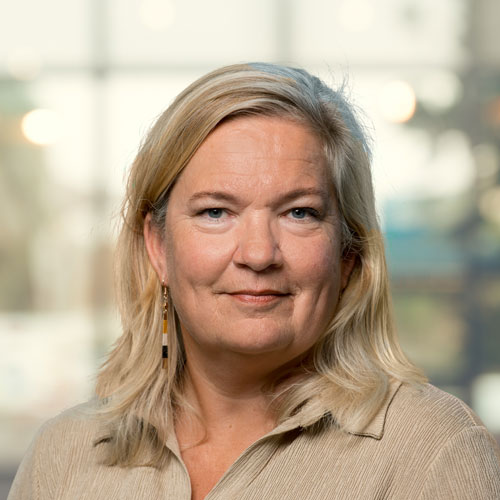How TNO is improving the health of a million mothers and children
It is estimated that around 200 million children worldwide under the age of 5 are not developing to their full potential. This problem is especially rife in low and middle-income countries. At TNO, our mission is to improve the health of at least one million mothers and children. The focus here is on the first 1,000 days after birth – a time that determines health and well-being for the rest of the newborn’s life.
Our ambition fits seamlessly with the WHO’s Healthy beginnings, hopeful futures campaign, launched on World Health Day 2025. Its objective is to draw global attention to the need for better care for mothers and newborns.
The goal of improving the health of a million mothers and children is not all that far-fetched, says Yvette Fleming, Business Development Manager and Innovation Orchestrator at TNO for the Innovation for Development (I4D) programme.
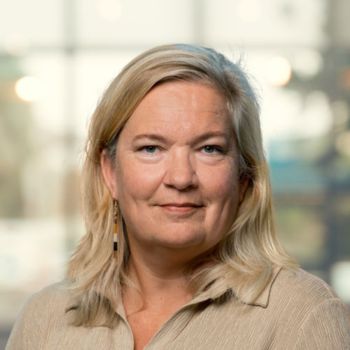
‘Here in the Netherlands, we have a strong system for youth health care,’ she says. ‘We’re even a global leader.’
By bringing together the entire ecosystem of government agencies, the private sector, civil-society organisations, members of the public, and funders, TNO can make a huge impact. Research shows that investing in early intervention pays off enormously: in family planning alone, every dollar invested worldwide yields an average of $1.40 in savings in maternal and child health care. Our projects in Africa and Asia are our way of helping to implement preventative solutions.
The first 1,000 days
‘This focus on the first 1,000 days forms the backbone for our projects,’ Yvette explains. That is the time from conception to the age of 2½ years, which means that the pregnant woman’s health is also taken into consideration. Work is currently under way to draft a proposal for a new EU study on co-morbid non-communicable diseases in pregnant women, such as obesity and diabetes. ‘In Africa, there’s a big problem among young women around weight,’ explains Yvette. ‘It affects getting pregnant, the pregnancy itself, and the baby’s development.’
Yvette says that the proposal to combine both digital and in-person individual and group meetings nicely demonstrates how both continents can learn from each other. ‘In the Netherlands, we mainly focus on lifestyle interventions for obese pregnant women, while in Africa, issuing medication is the norm. However, interest in medication is growing in the Netherlands, too, so we’re also expanding our own knowledge base by learning from Africa.’
In obstetric care as well, TNO is bringing new ideas from the Netherlands across the border. One example is the introduction of group care during the first 1,000 days, says Iris Eekhout, statistician at TNO: ‘Instead of having individual consultations, 8 to 12 women come together for care and support.’ This group approach is proving so successful that health insurers have been covering this form of care as standard since January 2024 in the Netherlands ‒ the only country in the world to do so. Through the EU Group Care 1000 project, we are now rolling this out in 7 countries, including Ghana, South Africa, and Suriname.
Working together as equal partners
A key factor here is cooperation on an equal footing, Yvette says. ‘We have to get rid of this notion that Africa only ever needs aid,’ she argues. ‘It has the fastest-growing economy of any continent, and soon it will have the youngest group of economically active people. TNO’s Innovation for Development (I4D) programme sees Africa as a key market as well as a partner for innovation.’
According to Yvette, that equal-partnership mindset is not always present yet in developing countries, partly for cultural and historical reasons. ‘I was on a video call with Kenyan experts recently and they mostly asked questions, and rather cautiously. I told them: this is a partnership, so questions are more than welcome, but it’s mainly about sharing ideas with each other. So, thank you!’
The conversations between countries yield surprising insights. ‘In the Netherlands, for instance, we’re working on self-diagnosis options, because this will allow everyone to continue living independently at home for as long as possible. There’s a great need for ways to self-diagnose in Africa as well, but for a very different reason: the poor infrastructure,’ Yvette explains. By contrast, there are some areas in which Africa is leading the way. ‘People in Africa are much more digitally savvy when it comes to health care than we are. Since they lack the traditional infrastructure, they’ve developed other solutions, which we can learn from now that our own health care system is under pressure. Digital solutions that make it easier for a single caregiver to provide care to multiple people, instead of just providing one-to-one help, are a good example.’
D-score: a new global standard
TNO’s role as innovation orchestrator is also evident in the development of the D-score. Created by a TNO scientist, this measurement method converts scores on various child development traits into a single universal unit of measurement, just as temperature is expressed in °C. ‘What’s special is that this allows us to compare child development around the world, regardless of which measurement instrument is used,’ Iris says. In the Netherlands, the D-score is now the default way to express child development in several municipalities.
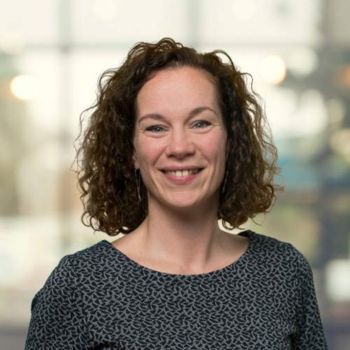
‘What’s special is that this allows us to compare child development around the world, regardless of which measurement instrument is used.’
In the Netherlands, the D-score is now the default way to express child development in several municipalities.
The World Health Organization (WHO) even selected it as the universal measurement method to express child development worldwide. This has proven crucial, says Iris. ‘If we’d started working with individual countries or partners, there probably would have been conflicting interests that stood in the way of adopting the D-score as a universal standard,’ she says. We are now working with others in a WHO-led task force on global standards for early child development, where the D-score is the universal measurement method.
The results are looking promising. We have launched pilots in several countries, including Tanzania, Bangladesh, and Pakistan. We are also developing an online platform called the Joint Anthropomorphic Measurement and Evaluation System (JAMES), which calculates and displays the D-score.
Ongoing projects for healthier children worldwide:
Universal measurement method developed by TNO that expresses in a single unit of measurement the physical, intellectual, social, and emotional development of children aged from 0 to 4. The WHO selected the D-score as its preferred method to measure and compare children’s development in a uniform way. Several Dutch municipalities are now using the method. The WHO is currently implementing the D-score as the standard in a dozen countries.
This online platform developed by TNO calculates and displays the D-score. The system analyses individual growth and development curves, and predicts possible deviations from the mean. JAMES offers care providers, organisations, and government agencies a simple way to monitor the health of children in their region, while protecting the privacy of individual users. The system is currently in its pilot phase.
The aim of this EU project is to arrange group care during pregnancy and the first few years of a child’s life. Groups of 8 to 12 women meet to obtain care and support. The project is running in seven countries, including Ghana, South Africa, Suriname, Kosovo, Belgium, the UK, and the Netherlands.
This is a combination of a diagnostic kit and group care for pregnant women, which includes simple measurement tools to identify pregnancy risks. The software provides support to help care providers make decisions. It has been successfully tested in Ghana and Indonesia.
This is an information programme for young people on pre-conception, pregnancy, sexually transmitted diseases, and childbirth. The programme uses group discussions to get young people interested in their sexual and reproductive health. It has been successfully implemented in the Netherlands and Suriname.
This programme developed to improve the mental health of young children (5–7 years) in South Sudan uses storytelling and a homemade ‘buddy’ to help children recognise and process their feelings. The programme consists of 11 sessions for both children and parents.
This new research proposal is aimed at addressing obesity and diabetes in pregnant women. The project compares the Dutch approach of lifestyle interventions with medicinal approaches in South Africa and Kenya, with the aim of learning from both approaches.
A joint market force
When implementing innovations in child health care, a broad ecosystem is essential. The specific approach we take here is to orchestrate innovation. ‘That’s why we’re building consortia in different countries, bringing local authorities, research institutions, and civil-society organisations together with the private sector,’ Yvette explains.
Would you like to play your part in improving children’s health worldwide? We are on the lookout for innovative early adopters: government agencies, clinics, researchers, and civil-society organisations with their own innovation challenges. We are also seeking cooperation with health insurers and social impact investors. Contact our business developers or subscribe to our newsletter.
Get inspired
Group Care during the first 1000 days makes a difference around the world
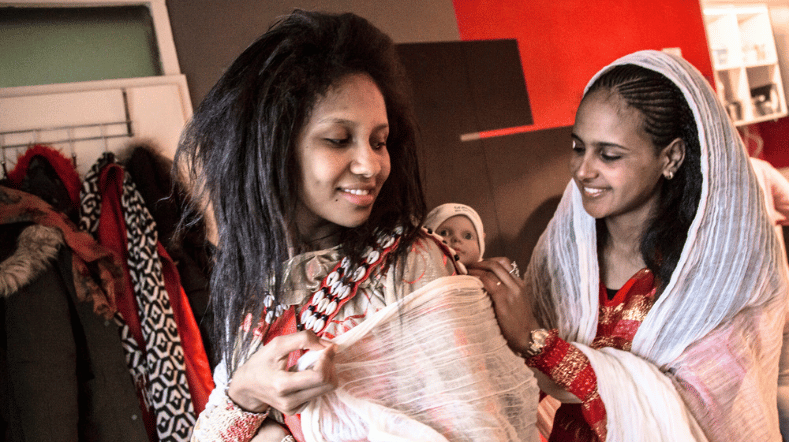

Personalised prevention and health


Eight things to know about the D-score
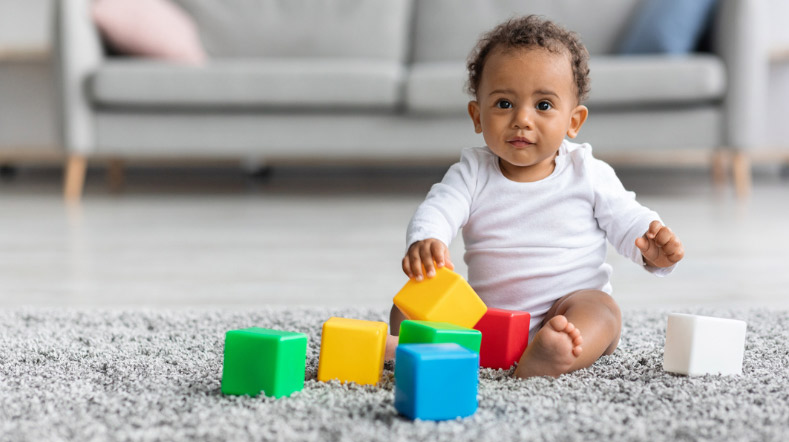

D-score in practice: simplifying the complexity of a childs development
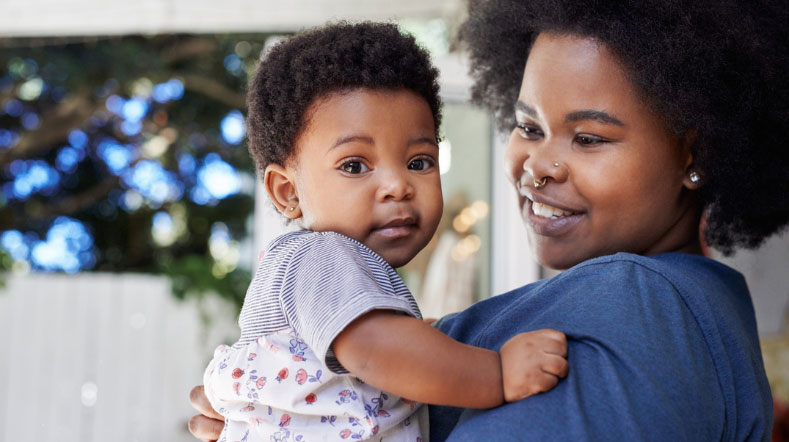

I-JGZ


